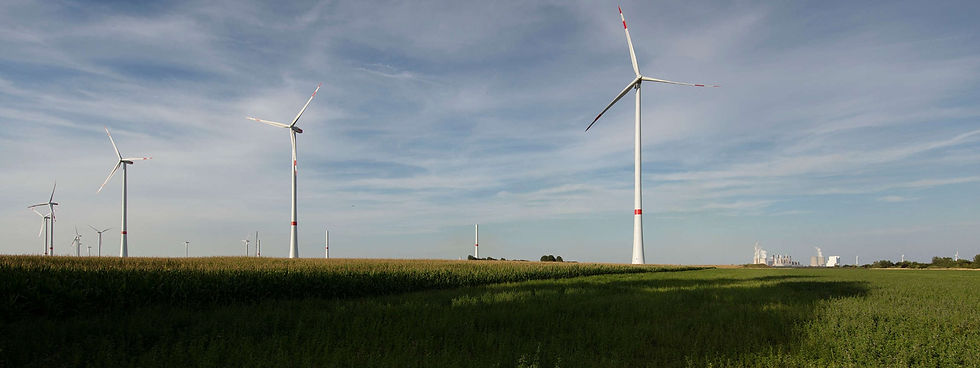Navigating Dunkelflaute: Ensuring Energy Security in a Renewable Future
- Timothy Beggans

- Nov 25, 2024
- 2 min read

As the energy transition accelerates, renewables like wind and solar are pivotal for reducing carbon emissions. Yet, their intermittency poses challenges for maintaining a stable power grid, particularly during dunkelflaute—a German term for prolonged periods of low wind and solar output. This recurring phenomenon highlights the importance of robust energy strategies, as seen in Germany's recent energy challenges.
Dunkelflaute and Renewable Output
A stark example of dunkelflaute occurred in early November 2024, when Germany’s renewable energy output plummeted. Prolonged cloudy weather and low wind speeds forced reliance on coal and gas-fired plants to meet energy demands. This highlighted the vulnerability of renewable-dependent grids during extended periods of low production.
RWE’s Call for Secure Energy Supply
In light of such challenges, German power generator RWE has stressed the need for dispatchable power sources and energy storage to offset renewables during dunkelflaute. While renewables remain the backbone of decarbonization, backup systems are crucial to ensure consistent electricity supply.
The Future of Germany’s Renewables
Germany’s wind power sector, its largest renewable energy contributor, is projected to face slower growth in 2024 due to regulatory and planning bottlenecks. These delays could exacerbate reliance on non-renewable sources during periods of low renewable output.
Building a Resilient Grid
To tackle dunkelflaute and stabilize the grid, countries must adopt a comprehensive approach:
Energy Storage: Large-scale battery systems and pumped hydro storage can store surplus renewable energy for use during lulls.
Flexible Power Generation: Backup natural gas or hydrogen-ready plants can provide quick-response power when needed.
Grid Interconnectivity: Strengthening cross-border electricity trading helps distribute energy more effectively across regions with varying weather conditions.
Balancing Sustainability and Reliability
Germany’s experience offers a critical lesson: integrating renewables into the energy mix requires complementary strategies to ensure energy security. By investing in innovative technologies and infrastructure, the global energy transition can continue without compromising reliability.







Comments